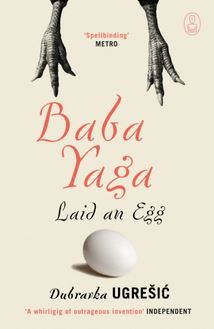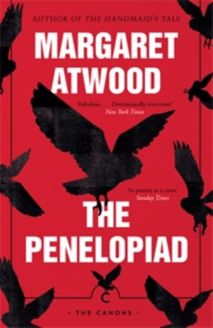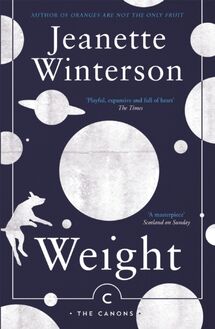-
 Univers
Univers
-
 Ebooks
Ebooks
-
 Livres audio
Livres audio
-
 Presse
Presse
-
 Podcasts
Podcasts
-
 BD
BD
-
 Documents
Documents
-
- Cours
- Révisions
- Ressources pédagogiques
- Sciences de l’éducation
- Manuels scolaires
- Langues
- Travaux de classe
- Annales de BEP
- Etudes supérieures
- Maternelle et primaire
- Fiches de lecture
- Orientation scolaire
- Méthodologie
- Corrigés de devoir
- Annales d’examens et concours
- Annales du bac
- Annales du brevet
- Rapports de stage
La lecture à portée de main
Vous pourrez modifier la taille du texte de cet ouvrage
Découvre YouScribe en t'inscrivant gratuitement
Je m'inscrisDécouvre YouScribe en t'inscrivant gratuitement
Je m'inscrisEn savoir plus
Vous pourrez modifier la taille du texte de cet ouvrage
En savoir plus

Description
Sujets
Informations
| Publié par | Canongate Books |
| Date de parution | 20 novembre 2008 |
| Nombre de lectures | 8 |
| EAN13 | 9781847673589 |
| Langue | English |
Informations légales : prix de location à la page 0,0360€. Cette information est donnée uniquement à titre indicatif conformément à la législation en vigueur.
Extrait
Margaret Atwood is the author of more than forty books of fiction, poetry and critical essays. In addition to the classic, The Handmaid's Tale , her novels include Cat's Eye , shortlisted for the Booker prize, Alias Grace , which won the Giller Prize in Canada and the Premio Mondello in Italy, The Blind Assassin , winner of the 2000 Booker Prize and Oryx and Crake , shortlisted for the Man Booker Prize. She was awarded the Prince of Asturias Prize for Literature in 2008. In 2017, The Handmaid's Tale was adapted for an Emmy-nominated TV series and Alias Grace was adapted into a Netlix Original.
For my family
‘… Shrewd Odysseus! … You are a fortunate man to have won a wife of such pre-eminent virtue! How faithful was your flawless Penelope, Icarius’ daughter! How loyally she kept the memory of the husband of her youth! The glory of her virtue will not fade with the years, but the deathless gods themselves will make a beautiful song for mortal ears in honour of the constant Penelope.’
– The Odyssey , Book 24 (191–194)
… he took a cable which had seen service on a blue-bowed ship, made one end fast to a high column in the portico, and threw the other over the round-house, high up, so that their feet would not touch the ground. As when long-winged thrushes or doves get entangled in a snare … so the women’s heads were held fast in a row, with nooses round their necks, to bring them to the most pitiable end. For a little while their feet twitched, but not for very long.
– The Odyssey , Book 22 (470–473)
CONTENTS
Introduction
i A Low Art
ii The Chorus Line: A Rope-Jumping Rhyme
iii My Childhood
iv The Chorus Line: Kiddie Mourn, A Lament by the Maids
v Asphodel
vi My Marriage
vii The Scar
viii The Chorus Line: If I Was a Princess, A Popular Tune
ix The Trusted Cackle-Hen
x The Chorus Line: The Birth of Telemachus, An Idyll
xi Helen Ruins My Life
xii Waiting
xiii The Chorus Line: The Wily Sea Captain, A Sea Shanty
xiv The Suitors Stuff Their Faces
xv The Shroud
xvi Bad Dreams
xvii The Chorus Line: Dreamboats, A Ballad
xviii News of Helen
xix Yelp of Joy
xx Slanderous Gossip
xxi The Chorus Line: The Perils of Penelope, A Drama
xxii Helen Takes a Bath
xxiii Odysseus and Telemachus Snuff the Maids
xxiv The Chorus Line: An Anthropology Lecture
xxv Heart of Flint
xxvi The Chorus Line: The Trial of Odysseus, as Videotaped by the Maids
xxvii Home Life in Hades
xxviii The Chorus Line: We’re Walking Behind You, A Love Song
xxix Envoi
Notes
Acknowledgements
Introduction
The story of Odysseus’ return to his home kingdom of Ithaca following an absence of twenty years is best known from Homer’s Odyssey . Odysseus is said to have spent half of these years fighting the Trojan War and the other half wandering around the Aegean Sea, trying to get home, enduring hardships, conquering or evading monsters, and sleeping with goddesses. The character of ‘wily Odysseus’ has been much commented on: he’s noted as a persuasive liar and disguise artist – a man who lives by his wits, who devises stratagems and tricks, and who is sometimes too clever for his own good. His divine helper is Pallas Athene, a goddess who admires Odysseus for his ready inventiveness.
In The Odyssey , Penelope – daughter of Icarius of Sparta, and cousin of the beautiful Helen of Troy – is portrayed as the quintessential faithful wife, a woman known for her intelligence and constancy. In addition to weeping and praying for the return of Odysseus, she cleverly deceives the many Suitors who are swarming around her palace, eating up Odysseus’ estate in an attempt to force her to marry one of them. Not only does Penelope lead them on with false promises, she weaves a shroud that she unravels at night, delaying her marriage decision until its completion. Part of The Odyssey concerns her problems with her teenaged son, Telemachus, who is bent on asserting himself not only against the troublesome and dangerous Suitors, but against his mother as well. The book draws to an end with the slaughter of the Suitors by Odysseus and Telemachus, the hanging of twelve of the maids who have been sleeping with the Suitors, and the reunion of Odysseus and Penelope.
But Homer’s Odyssey is not the only version of the story. Mythic material was originally oral, and also local – a myth would be told one way in one place and quite differently in another. I have drawn on material other than The Odyssey , especially for the details of Penelope’s parentage, her early life and marriage, and the scandalous rumours circulating about her.
I’ve chosen to give the telling of the story to Penelope and to the twelve hanged maids. The maids form a chanting and singing Chorus which focuses on two questions that must pose themselves after any close reading of The Odyssey : what led to the hanging of the maids, and what was Penelope really up to? The story as told in The Odyssey doesn’t hold water: there are too many inconsistencies. I’ve always been haunted by the hanged maids; and, in The Penelopiad , so is Penelope herself.
i
A Low Art
Now that I’m dead I know everything . This is what I wished would happen, but like so many of my wishes it failed to come true. I know only a few factoids that I didn’t know before. Death is much too high a price to pay for the satisfaction of curiosity, needless to say.
Since being dead – since achieving this state of bonelessness, liplessness, breastlessness – I’ve learned some things I would rather not know, as one does when listening at windows or opening other people’s letters. You think you’d like to read minds? Think again.
Down here everyone arrives with a sack, like the sacks used to keep the winds in, but each of these sacks is full of words – words you’ve spoken, words you’ve heard, words that have been said about you. Some sacks are very small, others large; my own is of a reasonable size, though a lot of the words in it concern my eminent husband. What a fool he made of me, some say. It was a specialty of his: making fools. He got away with everything, which was another of his specialties: getting away.
He was always so plausible. Many people have believed that his version of events was the true one, give or take a few murders, a few beautiful seductresses, a few one-eyed monsters. Even I believed him, from time to time. I knew he was tricky and a liar, I just didn’t think he would play his tricks and try out his lies on me. Hadn’t I been faithful? Hadn’t I waited, and waited, and waited, despite the temptation – almost the compulsion – to do otherwise? And what did I amount to, once the official version gained ground? An edifying legend. A stick used to beat other women with. Why couldn’t they be as considerate, as trustworthy, as all-suffering as I had been? That was the line they took, the singers, the yarn-spinners. Don’t follow my example , I want to scream in your ears – yes, yours! But when I try to scream, I sound like an owl.
Of course I had inklings, about his slipperiness, his wiliness, his foxiness, his – how can I put this? – his unscrupulousness, but I turned a blind eye. I kept my mouth shut; or, if I opened it, I sang his praises. I didn’t contradict, I didn’t ask awkward questions, I didn’t dig deep. I wanted happy endings in those days, and happy endings are best achieved by keeping the right doors locked and going to sleep during the rampages.
But after the main events were over and things had become less legendary, I realised how many people were laughing at me behind my back – how they were jeering, making jokes about me, jokes both clean and dirty; how they were turning me into a story, or into several stories, though not the kind of stories I’d prefer to hear about myself. What can a woman do when scandalous gossip travels the world? If she defends herself she sounds guilty. So I waited some more.
Now that all the others have run out of air, it’s my turn to do a little story-making. I owe it to myself. I’ve had to work myself up to it: it’s a low art, tale-telling. Old women go in for it, strolling beggars, blind singers, maidservants, children – folks with time on their hands. Once, people would have laughed if I’d tried to play the minstrel – there’s nothing more preposterous than an aristocrat fumbling around with the arts – but who cares about public opinion now? The opinion of the people down here: the opinion of shadows, of echoes. So I’ll spin a thread of my own.
The difficulty is that I have no mouth through which I can speak. I can’t make myself understood, not in your world, the world of bodies, of tongues and fingers; and most of the time I have no listeners, not on your side of the river. Those of you who may catch the odd whisper, the odd squeak, so easily mistake my words for breezes rustling the dry reeds, for bats at twilight, for bad dreams.
But I’ve always been of a determined nature. Patient, they used to call me. I like to see a thing through to the end.
ii
The Chorus Line: A Rope-Jumping Rhyme
we are the maids
the ones you killed
the ones you failed
we danced in air
our bare feet twitched
it was not fair
with every goddess, queen, and bitch
from there to here
you scratched your itch
we did much less
than what you did
you judged us bad
you had the spear
you had the word
at your command
we scrubbed the blood
of our dead
paramours from floors, from chairs
from stairs, from doors,
we knelt in water
while you stared
at our bare feet
it was not fair
you licked our fear
it gave you pleasure
you raised your hand
you watched us fall
we danced on air
the ones you failed
the ones you killed
iii
My Childhood
Where shall I begin? There are only two choices: at the beginning or not at the beginning. The real beginning would be the beginning of the world, after which one thing has led to another; but since there are differences of opinion about that, I’ll begin with my own birth.
My father was
-
 Univers
Univers
-
 Ebooks
Ebooks
-
 Livres audio
Livres audio
-
 Presse
Presse
-
 Podcasts
Podcasts
-
 BD
BD
-
 Documents
Documents
-
Jeunesse
-
Littérature
-
Ressources professionnelles
-
Santé et bien-être
-
Savoirs
-
Education
-
Loisirs et hobbies
-
Art, musique et cinéma
-
Actualité et débat de société
-
Jeunesse
-
Littérature
-
Ressources professionnelles
-
Santé et bien-être
-
Savoirs
-
Education
-
Loisirs et hobbies
-
Art, musique et cinéma
-
Actualité et débat de société
-
Actualités
-
Lifestyle
-
Presse jeunesse
-
Presse professionnelle
-
Pratique
-
Presse sportive
-
Presse internationale
-
Culture & Médias
-
Action et Aventures
-
Science-fiction et Fantasy
-
Société
-
Jeunesse
-
Littérature
-
Ressources professionnelles
-
Santé et bien-être
-
Savoirs
-
Education
-
Loisirs et hobbies
-
Art, musique et cinéma
-
Actualité et débat de société
- Cours
- Révisions
- Ressources pédagogiques
- Sciences de l’éducation
- Manuels scolaires
- Langues
- Travaux de classe
- Annales de BEP
- Etudes supérieures
- Maternelle et primaire
- Fiches de lecture
- Orientation scolaire
- Méthodologie
- Corrigés de devoir
- Annales d’examens et concours
- Annales du bac
- Annales du brevet
- Rapports de stage















